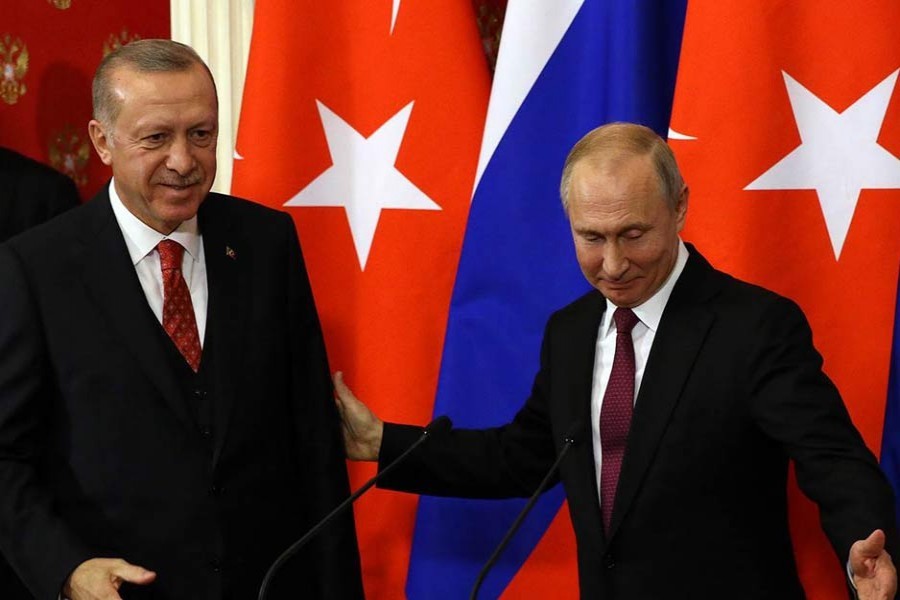To celebrate and reflect upon the security alliance's 70th anniversary the Foreign Ministers of NATO countries gathered for a two-day meeting in Washington on April 03, 2019 with the theme, "NATO Engages: the Alliance at 70."
Article 5 of the US-led North Atlantic Treaty Organisation (NATO) stipulates that "an armed attack against one or more of them in Europe or North America shall be considered an attack against them all." Thus, the principle of collective defence is the cornerstone of the NATO alliance.
NATO agreement was signed on April 04, 1949 in Washington. The twelve founding members included - Belgium, Britain, Canada, Denmark, France, Iceland, Italy, Luxembourg, the Netherlands, Norway, Portugal and the United States.
NATO was formed mainly to protect and provide security to war-devastated Europe against possible attack by the former Soviet Union, deemed hostile to the Western capitalist system. Over the years, NATO membership has increased to 29. The success of the NATO appears clear: it not only ensured the longest period of peace and prosperity in the history of European continent, but also helped maintain a rule-based international order.
However, at 70, it seems, the alliance is in disarray. The US, which led the NATO ever since its birth, is not happy with it under the Trump administration. President Trump made open his displeasure about NATO allies on their small contributions to the annual budget of the organisation as well as small defence budgets of their individual countries.
Addressing the "NATO Engages" conference, US Vice President Mike Pence criticised both Germany and Turkey for their dealings with Russia. Pence also criticised Germany for not spending adequately on defence and for its plans to construct a gas pipeline from Russia. He denounced Turkey for its intent to purchase an advanced S-400 Russian air-defence system. Pence remarked, "Turkey must choose….does it want to remain a critical partner in the most successful military alliance in history or does it want to risk the security of that partnership by making such reckless decisions that undermine our alliance?"
However, US Congressional lawmakers, both Republican and Democrats, are fully supportive of the NATO. Jens Stoltenberg, NATO Secretary-General, was invited to address a joint session of the US Congress by House Speaker Nancy Pelosi (D-CA) and Senate Majority Leader Mitch McConnell (R-KY) on April 03. He is the first NATO Secretary-General to address the Congress.
In his 39-minutes speech, Stoltenberg highlighted the importance of the military alliance between Europe and the US and contended, "Our alliance has not lasted for 70 years out of a sense of nostalgia or of sentiment…..NATO lasts because it is in the national interest of each and every one of our countries."
On April 04, the foreign ministers of NATO held a series of meetings focusing on Russia. They approved a new package of measures including surveillance and naval exercises in the Black Sea region aimed at improving NATO's defences.
At the close of the two-day conference, NATO foreign ministers said in a joint statement that they have been confronting "an unpredictable and challenging security situation" including a more belligerent Russia.
Daniel Hamilton, a transatlantic relations expert at Johns Hopkins University, told the Voice of America (VOA) that over the last seven decades NATO has demonstrated a "sort of a magnetic quality." Since the end of the Cold War, it expanded to include former members of the "Warsaw Pact", a counter defence alliance formed by the Soviet Union in 1955.
This, however, raised a question as to whether NATO was partly responsible for current tensions with Moscow by expanding up to the borders of Russia; and whether NATO's open invitation to Georgia and Ukraine to join the alliance is a provocation against Russia.
In an interview with VOA, Jens Stoltenberg rejected that criticism terming it as "really, really dangerous". He said, "As soon as you accept that that's a provocation against Russia, you accept that Russia has the right to decide what neighbours can do"; it equates accepting "a world order where big powers can decide what neighbours can or cannot do," which will then lead to re-establishing "the whole idea of spheres of influence." Stoltenberg emphasised, "Georgia and Ukraine are independent sovereign nations which have the sovereign right to choose their own paths."
To conclude, NATO celebrated its 70th anniversary amid rifts and disagreements between the allies over burden-sharing, security, and trade issues. Despite challenged from within, NATO looks unified towards security measures and undeniably remains the most successful and powerful mutual defense pact in the history of the world.
Dr. Kamal Uddin Ahmed is a former Professor and Chairman, Department of Political Science, University of Dhaka. [email protected]


